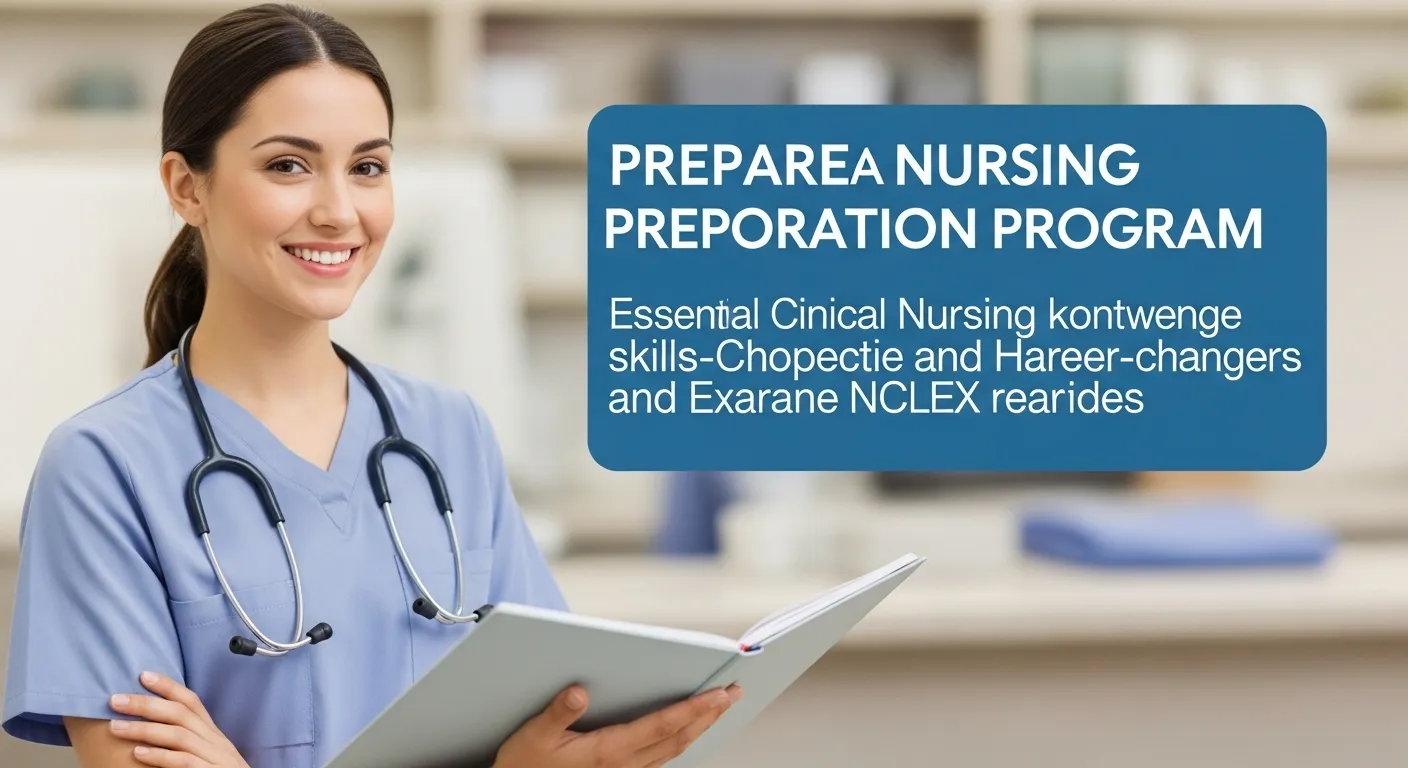- What Is a Nursing Preparation Program?
- The Role of Specialized Training in Nursing
- Career Paths Supported by Nursing Preparation Programs
- Boosting Confidence and Competency
- Long-Term Advantages for Nursing Professionals
- How to Choose the Right Nursing Preparation Program
- Transforming Your Career Trajectory Through Preparation
- Conclusion
What Is a Nursing Preparation Program?
A nursing preparation program is a specialized educational track designed to prepare aspiring nurses and career changers for the rigorous demands of the healthcare field. These programs focus on providing foundational nursing knowledge, skills-based training, and exam readiness, often in a condensed and supportive format. Unlike traditional nursing degree programs, which cover broad academic content over several years, nursing preparation programs focus on essential clinical competencies, hands-on practice, and strategies for success on licensure exams, such as the NCLEX.
For individuals looking to fast-track their transition into nursing, enhance their clinical abilities, or gain an edge in exam performance, enrolling in a nursing preparation program Brooklyn, NY, can be a game-changer. These programs offer a comprehensive bridge for those with prior healthcare experience or newcomers eager to enter the field, ensuring they meet professional standards and are fully prepared for both classroom and clinical environments.
The Role of Specialized Training in Nursing
Hands-on Skills and Exam Readiness
Modern healthcare demands highly skilled and adaptable nursing professionals. Nursing preparation programs excel by emphasizing hands-on skills through simulations and practical exercises, enabling students to develop the competencies necessary for effective patient care in the real world. These practical learning opportunities help bridge gaps left by more theory-heavy academic tracks, equipping participants to respond confidently during high-pressure clinical situations and standardized nursing exams.
Bridging Learning Gaps
Not every student enters nursing school with equal preparation, and many face challenges in mastering complex medical concepts or practical techniques. Preparation programs address these inequalities by tailoring instruction to individual needs, offering extra support through tutoring, mentorship, and personalized feedback. This approach not only levels the playing field but also fosters lifelong learning skills vital in fast-evolving clinical settings.
Career Paths Supported by Nursing Preparation Programs
Diverse Roles in Healthcare
Nurses today can pursue a wide range of career opportunities, from bedside care in hospitals to specialized roles in outpatient clinics, long-term care facilities, administration, and public health. Completing a preparation program ensures graduates are not only job-ready for entry-level positions but are also poised for lateral movements or upward mobility into leadership or educational roles as their experience expands.

Career Pivot Examples
Many professionals transition into nursing from unrelated fields, such as business, education, or allied health. For instance, a medical assistant or EMT might complete a nursing preparation program to expand their scope of practice and earning potential. Likewise, career changers often leverage their new skill sets to find rewarding positions in patient advocacy, case management, or healthcare policy, illustrating the broad applicability of high-quality nursing education.
Boosting Confidence and Competency
Managing Test Anxiety and Stress
Test anxiety and the high stakes of licensure exams can be significant barriers to success. Preparation programs actively address these challenges through guided practice exams, stress management workshops, and a supportive peer environment. These resources help students develop effective study habits, resilience, and the composure needed to perform at their best.
Simulated Clinical Environments
Exposure to simulated clinical environments provides invaluable experience, allowing students to practice patient interactions, procedural skills, and critical decision-making in realistic scenarios. This immersive training builds both confidence and technical proficiency, translating directly to improved patient care and reduced errors once on the job.
Long-Term Advantages for Nursing Professionals
- Greater Job Satisfaction: Comprehensive preparation leads to smoother transitions into clinical roles and higher workplace confidence, resulting in better job satisfaction over time.
- Increased Earning Potential: Well-prepared nurses are in high demand—a trend supported by the U.S. Bureau of Labor Statistics, which projects significant job growth and competitive salaries across nursing specialties.
- Expanded Professional Network: Cohort-based programs foster strong professional connections with peers, educators, and clinical mentors that can benefit one’s career for years to come.
According to a recent report, advanced preparation and continuing education are directly linked to improved patient outcomes, greater job stability, and lasting career satisfaction for nurses.
How to Choose the Right Nursing Preparation Program
Accreditation and Curriculum Quality
Accreditation is the cornerstone of an effective preparation program. Look for offerings recognized by accredited agencies, as these programs adhere to rigorous educational standards and ensure graduates are eligible for licensure. A strong curriculum should strike a balance between theory, practical skills, and test preparation to address the multifaceted demands of the profession.
Industry Recommendations and Alumni Success
Reviewing recommendations from respected organizations can help prospective students identify reputable programs. Investigating alumni success stories and job placement rates also provides valuable insight into the effectiveness of a particular program.
Transforming Your Career Trajectory Through Preparation
Strategic Next Steps After Program Completion
Graduating from a nursing preparation program is only the beginning. Continuing education, pursuing certifications, and participating in professional associations can further accelerate career growth. Many alumni find that their enhanced confidence and clinical expertise open doors to new roles, leadership responsibilities, and greater impact within their organizations.
Real-World Impact on Growth
The transformation experienced through focused nursing preparation is both personal and professional in nature. Graduates cite increased self-assurance, improved problem-solving skills, and a deeper sense of purpose in their daily work. Ultimately, a strong foundation established by such programs empowers nurses to excel in diverse healthcare settings, make a lasting impact on patients, and achieve their long-term career objectives.
Conclusion
Nursing preparation programs serve as a vital stepping stone for individuals seeking to enter or advance within the healthcare field. By combining hands-on skills training, exam readiness, and tailored support, these programs equip students with the confidence and competence necessary to thrive in clinical environments. Beyond immediate educational benefits, they open doors to diverse career paths, increased earning potential, and long-term professional growth. Choosing a reputable, accredited program ensures that aspiring nurses are not only prepared for licensure exams but also poised to make a meaningful impact on patient care and the broader healthcare community. Ultimately, investing in a nursing preparation program is an investment in both personal development and a fulfilling, purpose-driven career.

